Long, long ago, on the Khasi Hills, there lived a widow and her only son, a young man of great beauty but who was mentally impeded and was known throughout the community as “U Bieit” (the idiot).
As she was very poor and had none to call her own, she was forced to work every day to provide for herself and her helpless child. So, the son was left to his own ways and roamed freely throughout the hamlet. Naturally, he became a very bothersome child to his neighbors since he frequently broke into their homes to look for food, causing much harm and loss.
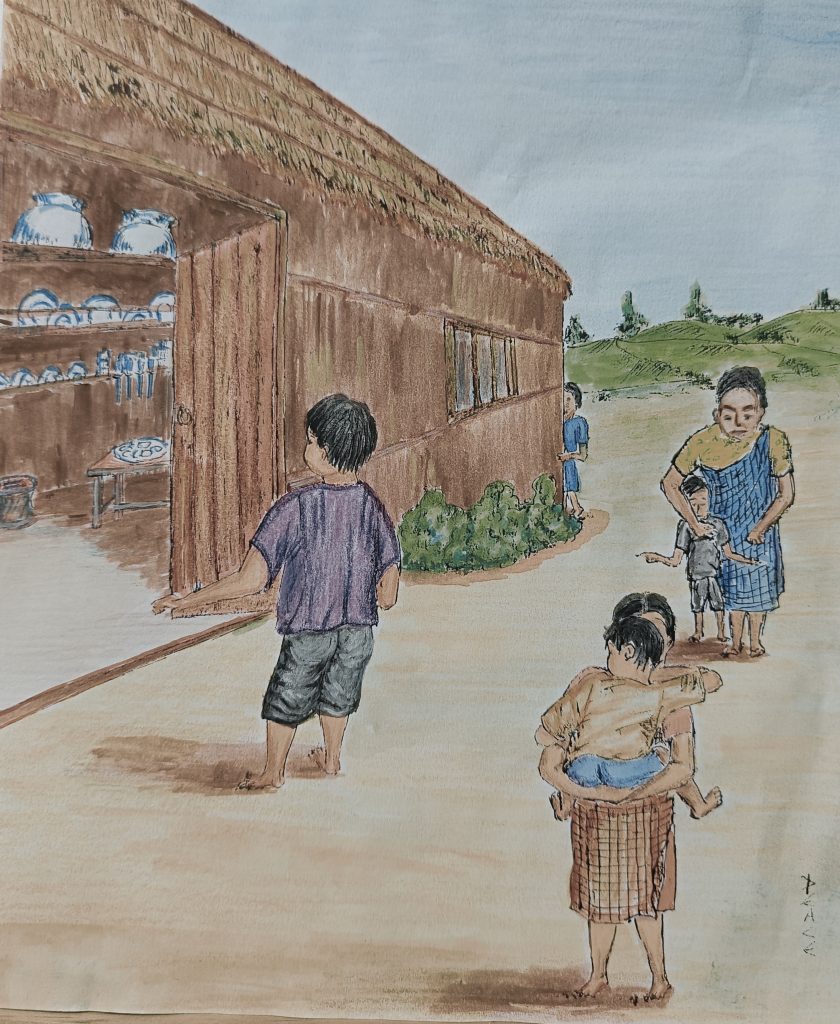
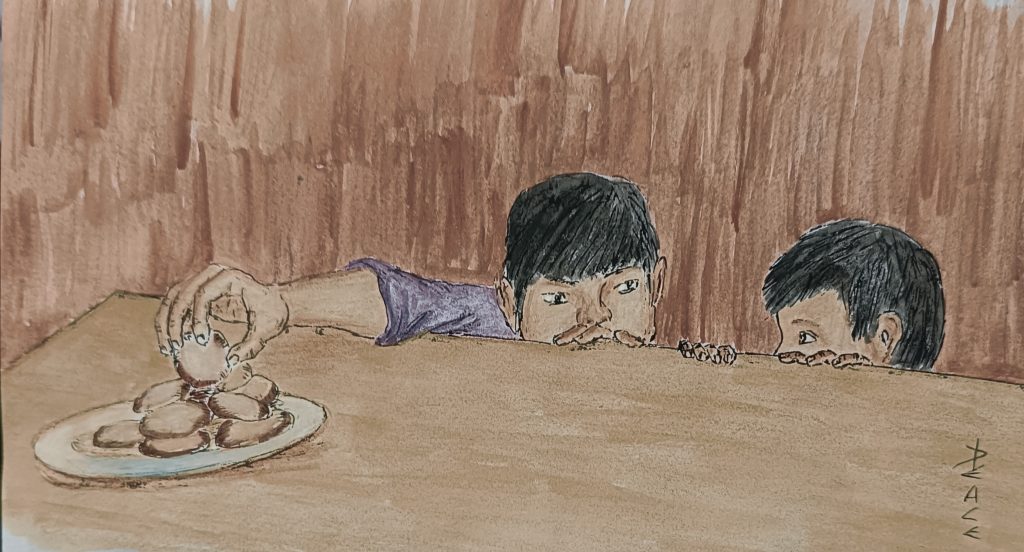
U Bieit, like most people of weak intellect, displayed wonderful cunning in some directions, especially in procuring some good thing to eat, and the way he succeeded in duping some of his more shrewd comrades in order to obtain some dainty tit-bits of food was a source of great amusement and merriment. However, there were so many bad situations that people were afraid to leave their homes, and things eventually became so serious that the widow was obliged to leave the hamlet .
She sought admission into many of the surrounding villages, but the fame of U Bieit had travelled before him and no one was willing to let them dwell in their midst. So in great distress she took him down to the plains, where there was a big river along which many boats used to sail. Here she determined to abandon him, hoping that some of the wealthy merchants who often passed that way might be attracted by his good looks and take him into their company.
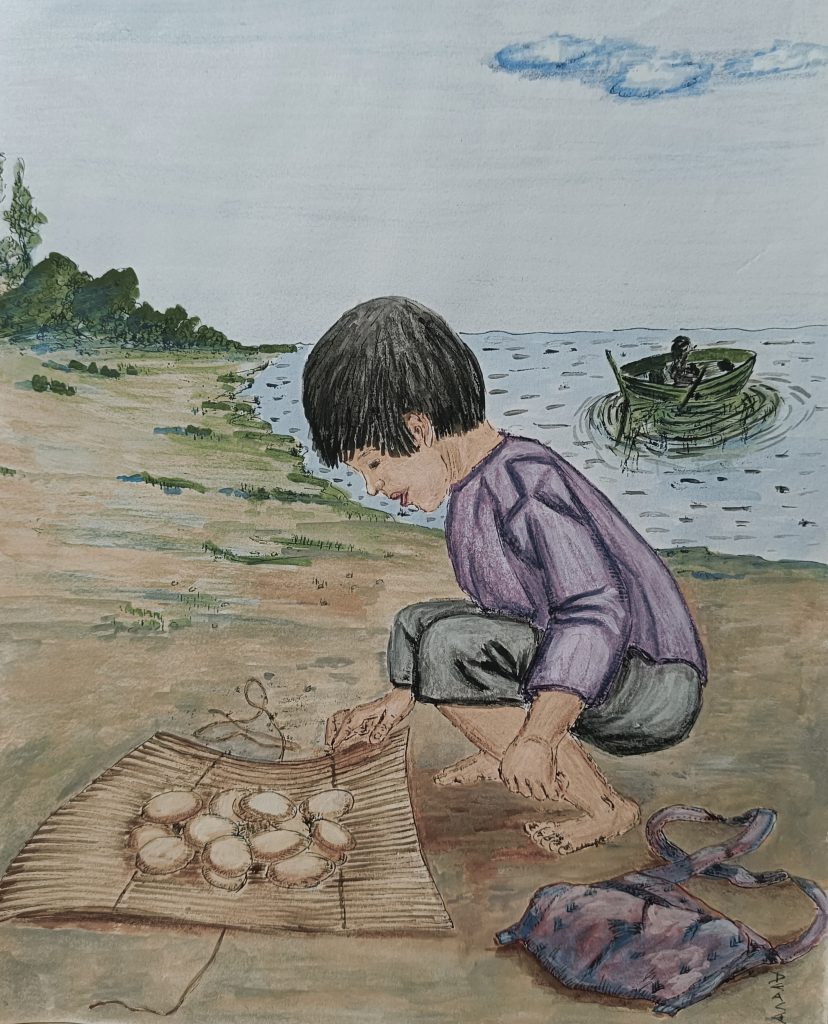
She gave him some rice cakes to eat when he should be hungry, and told him to be a good boy and stay by the river-side, and she would bring him more cakes next day. A boy, feeling lonely and uncomfortable in his new surroundings, hides from boats.
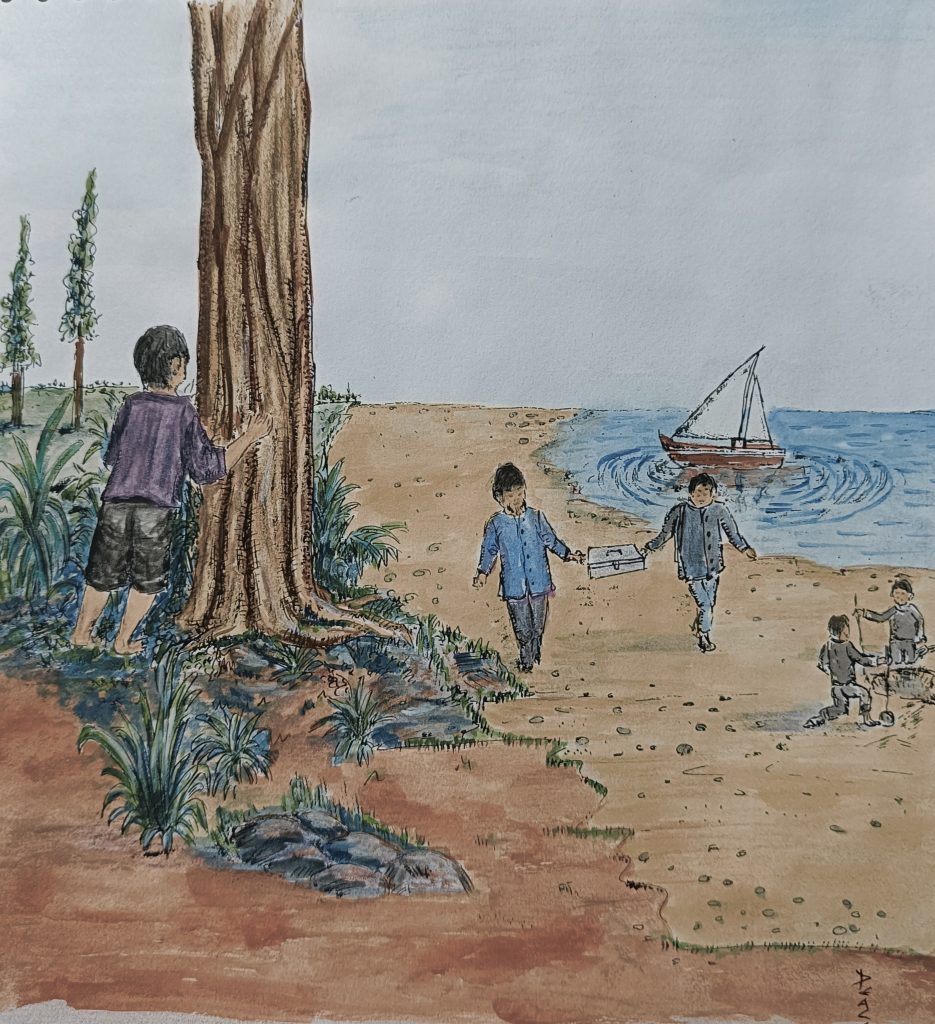
A wealthy merchant was returning from a journey when he landed to eat food. The servants were traveling back and forth in the boat while preparing their master’s food. He instructed them to carry his chest of gold nuggets ashore and bury it in the sands near where he sat, as he was worried that some of the servants may tamper with it.
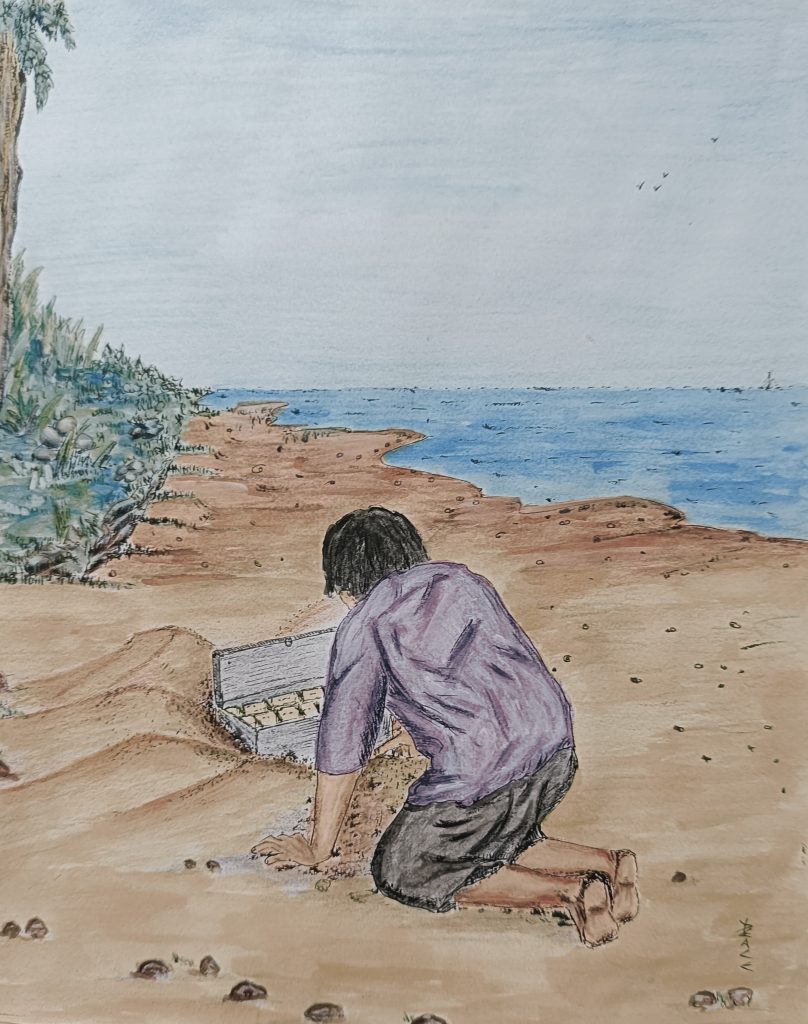
A strong shower fell just as he finished his meal, and the merchant rushed to take refuge in his boat; in his haste, he forgot about the box of gold buried in the sand dunes and the boat sailed away without it.
The dumb boy had been watching the activities with keen interest and a desire to enjoy the tempting supper, but fear of the boat with white sails kept him from revealing himself. However, as the boat was out of sight, he emerged from the bush and began unearthing the concealed chest. When he spotted the gold nuggets, he believed they were cakes and tried to eat one by putting it in his mouth. Finding it so difficult, he assumed that it had to be unbaked.
His sad mind immediately flew to his mother, who always baked meals for him at home, and, bearing the heavy chest on his back, he started through the forest to seek her, and his instinct, like that of a homing pigeon, brought him safely to his mother’s door.
Nobody saw him because it was fairly dark when he arrived at the village. The boy’s mother was grieving for her abandonment and regret for leaving her child. She wished she had money to earn neighbors’ goodwill and live with her son. She heard a shuffling sound at the door and was delighted to find him alive and well.
She was surprised to see him carrying a large chest on his shoulders, and while his silly statements gave no clue into how he had obtained hold of it, her eyes sparkled with excitement when she noticed it was filled of gold nuggets. She let the boy continue to believe they were cakes, and to appease him, she got some rice and baked some savory cakes for him, claiming she was baking the cakes from the chest. He went to bed content and delighted after eating these. Now, the widow had long desired wealth, arguing that she wanted it to provide better comforts for her son, who could not care for himself, but as soon as the gold reached her grasp, her heart was filled with greed. She was not only unwilling to part with any of the nuggets to secure the favor of the people for her son, but she plans to send him abroad to search for more gold, even if he faces danger. She summons him and urges him to return to the riverbank to bring more cakes for her.
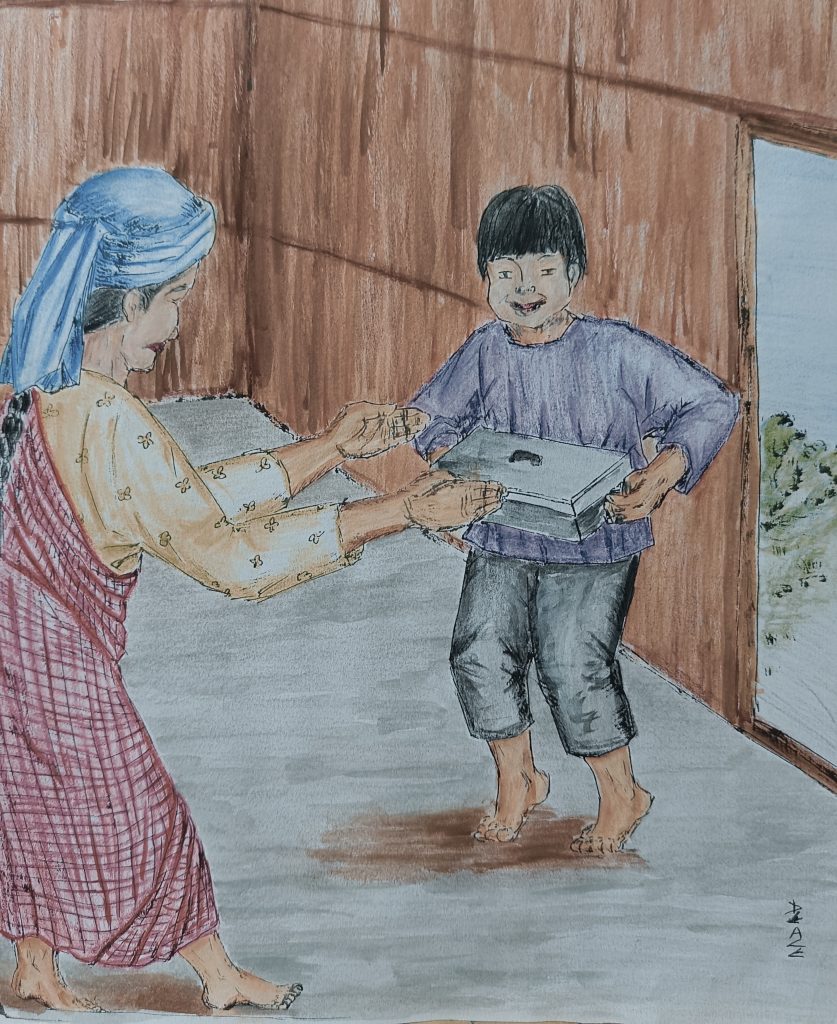
So the child set out on his pointless errand, but soon became lost in the jungle; he couldn’t find the road to the river or his mother’s house, so he wandered around in the deep woods, despairing and hungry, looking for hidden chests and unbaked cakes.
Fairies in a woodland had haunts, but were invisible to humans. They knew about the foolish kid’s sad history and sympathized with his mother’s greed. They decided to take him to the fairies’ country, where he would be safe and receive care from willing hands.
So they said they didn’t have anything else to offer in that location, but if he wanted to accompany them to the country of the fairies beyond the Blue Realm, he could enjoy an abundance of good food and Hyndet cakes. He declared his willingness to leave right away and inquired as to how he should get there. They ordered him to grab their wings, cling tightly, and not speak on the way; so he grabbed the fairies’ wings and the ascent to fairyland began.
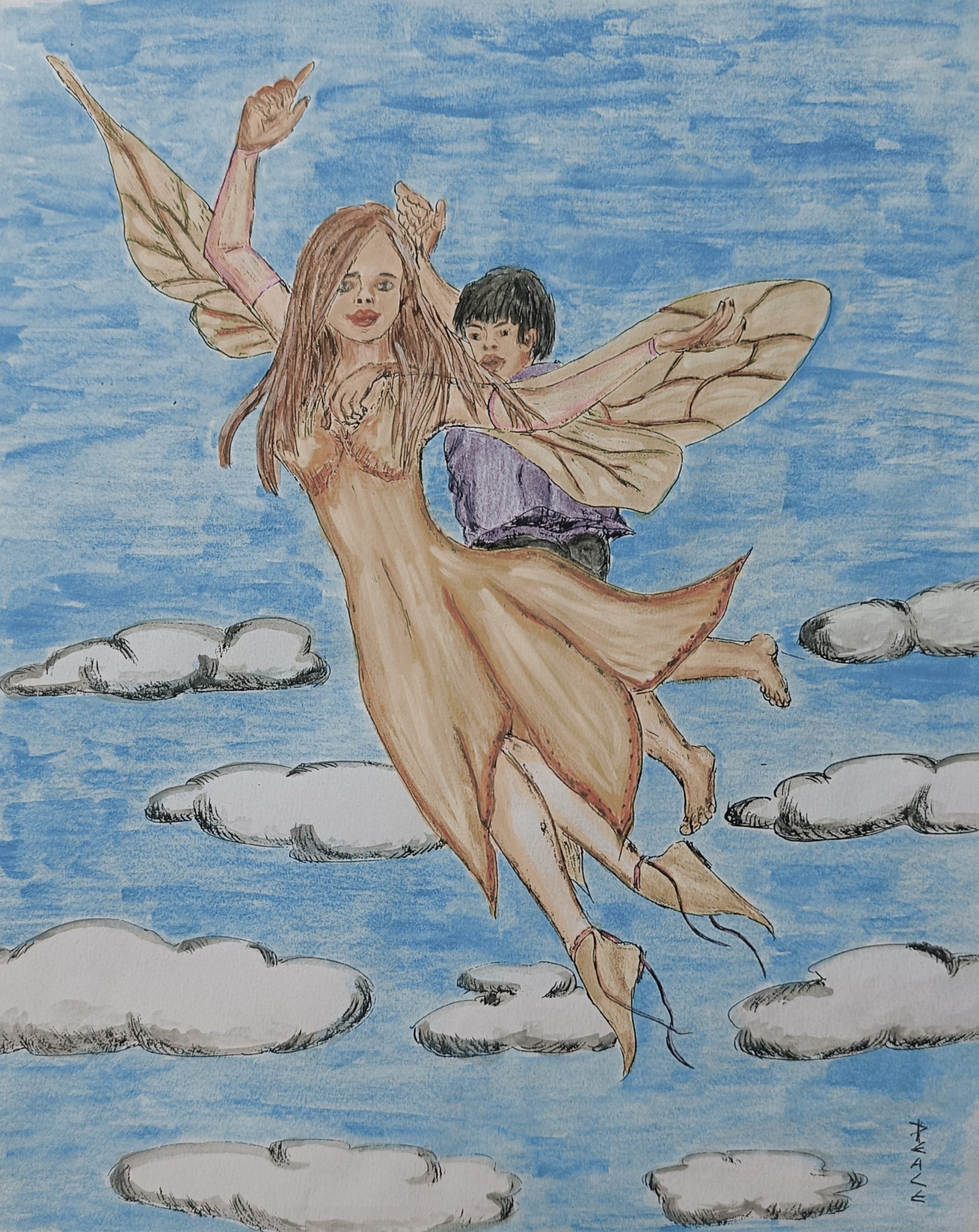
As they ascended higher, they saw lovely vistas that delighted the fairies as they passed. They saw the glory of the tallest mountains, and the limitless expanse of forest and river, and the fleeting shadows of the clouds, and the vivid colors of the rainbow, dazzling in their transitory beauty. But the youngster saw none of this since his basic mind was preoccupied with one thought—food. He could no longer suppress his interest as they soared to a great height and the limits of fairyland came into view, and, forgetting everything about the advice not to talk, he enthusiastically questioned the fairies, “Will the Hyndet cakes be big?” He lost his grip on the fairies as soon as he said the words he lost his hold on the fairies’ wings and, falling to the earth with great velocity, he died.
